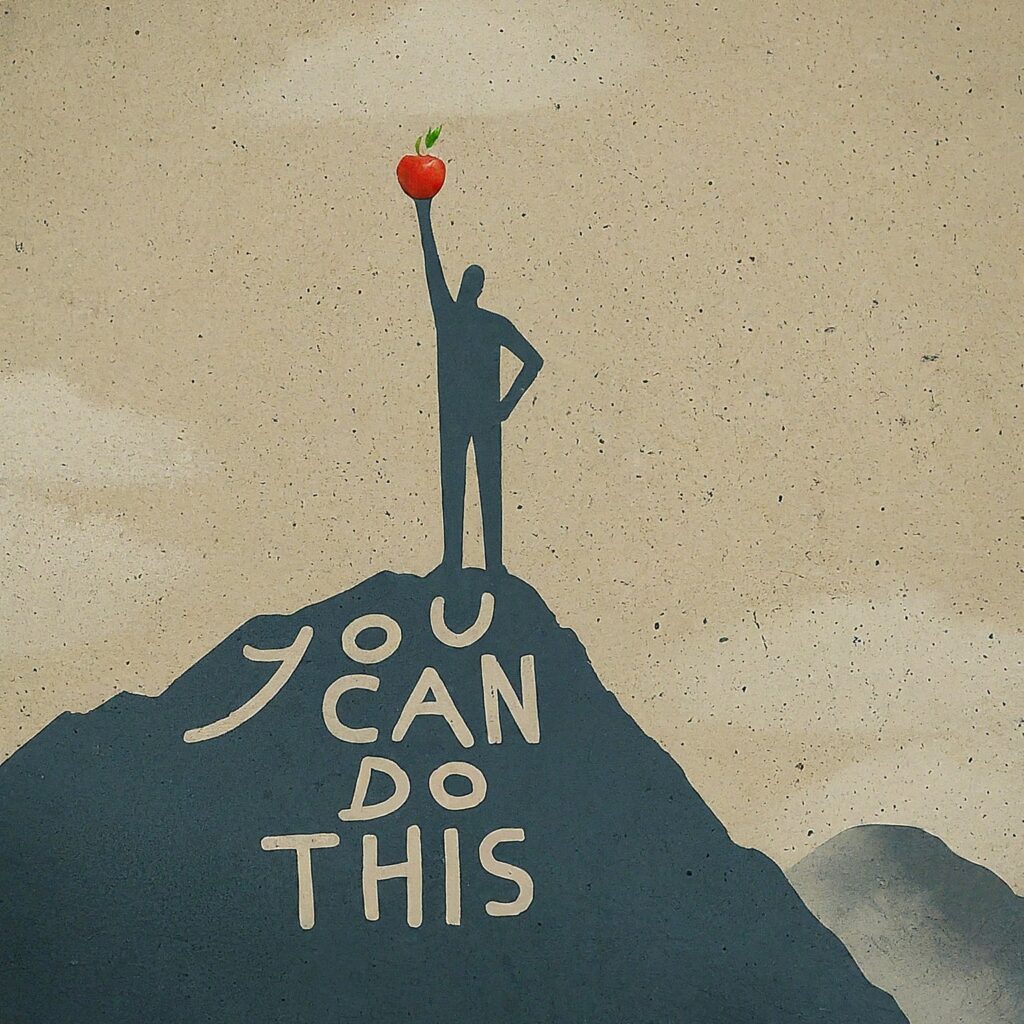
I’ve been an educator for virtually my entire adult career. Educators have been my peeps since I was born. My parents were educators, my spouse in an educator, my brother is an educator and many of my friends are educators. Though I began my Social Security earning history selling women’s shoes at a department store, I’ve had a teaching certificate since 1992 and served as a district administrator for seven interesting years. Over the last several years, I’ve been teaching future teachers and librarians at the university level.
All of this is an attempt to establish my educator bona fides — I think I know my way around the good people who call themselves educators. So when I make the next three statements, it comes from that point of view. Based on my observations, educators…
- rarely talk about money or finance in polite company,
- lack confidence in personal finance, and
- many are uncomfortable with the idea of wealth.
This is a FIRE Me 101 post.
Click on the hourglass or link to find more articles in this collection.
Did you hear about my new bidet?
Money is not what teachers talk about during their 30 minute lunch. Beyond the usual chatter about kids, colleagues, and bosses, educators are more likely to talk about their new bidet or their craft bootlegging than they are about sharing or talking about personal finance.
Back when I was teaching high school, I shared my short lunch time with a variable cabal of colleagues. As a result of our rapid scarfing of food and collegiality, we formed a semi-secret society which began to meet semi-regularly for afterschool happy hours. Speaking from experience, these were about the most unguarded hours I spent with fellow educators. In these boozy conversations, we talked about many things — details redacted — but almost never talking about money or finance.
Teachers are not alone. As a society and culture, adults struggle to talk about money and personal finance. Though I’m sharing some of my own stories in these posts, please know that I too am working through the discomfort of reflecting on, sharing, and discussing some details of my experiences with personal finance. In the words of a dear teacher librarian colleague who coined the phrase, I’m seeking to be Brave Before Perfect.
There are three good reasons…
Acknowledging that I’ve spent most of my life blissfully ignorant about personal finance, I’m not entirely surprised that my colleagues, like me, struggle to proactively talk about money. But as an educator myself, I think there are at least two reasons for this — not wanting to admit what we don’t know and not knowing what we don’t know. And maybe there’s a third reason.
1. Admitting what we don’t know
Educators hate not knowing the answer to a question — after all, we’re in charge, right? That’s what we’re paid for
- students present and accounted for
- learning targets on the board
- breakfast and lunch served hot and on time
- buses loaded and kiddoes in their seats
- classrooms clean and secured
- etc.
Professional pride is a natural and understandable barrier to admitting we don’t know what we need to know. But even if we recognize the need to build our understanding about personal finance, getting started can be overwhelming. Because it’s embarrassing to acknowledge what we don’t know (and think all the other grown ups around us already know.)
In my former district, an annual benefits fair is held every fall during open enrollment season. Insurance, retirement, and other financial service representatives are on hand to answer questions and provide information. To incentivize participation, the human resources department and vendors provide candy and swag to get people to show up. Some educators even bring a bag to collect the giveaways like so many early trick or treaters.
When I got the idea for this blog, I asked my wife about these fairs and how useful it was to have information and guidance for retirement there. She gave me an honest answer — “I wouldn’t even know what questions to ask.”
Here lies the second challenge.
2. Not knowing what we don’t know
Educators can be partially forgiven for not knowing what questions to ask. As I’ve self-taught myself about personal finance and financial independence, I’ve discovered the following:
- information and discussions about educator-specific retirement tools — pensions, 457(b), and 403(b) — are hard to come by,
- pension and investment websites are overwhelming, confusing or simply suck,
- school districts and systems often provide little or no guidance and support for financial planning,
- retirement investment products and services offered to educators have been limited and/or proprietary (often with higher fees and lower returns), and
- many mainstream blogs and resources focus on strategies that do not account for pensions and other savings options which most educators have.
3. Can an educator be rich?
Finally, I think educators can also struggle with the idea of affluence. They know what wealth looks like, but many find it hard to associate the work of teaching, driving buses, feeding students, and leading schools with making money and building wealth. There could be many reasons for this:
- role as public servants,
- history and perception of low pay,
- association with labor unions, and
- working for non-profit organizations.
Speaking for myself, this was a challenge for me. I struggled with the idea of personal wealth as a public school employee. And truth be told, I’m still working through it. When I began doing educational consulting work a few years ago, I was gobsmacked to learn how much some of my consulting peers charged for their services, charging as much in a day as I once made per month as a teacher librarian. I confided my discomfort with a bemused non-educator friend and colleague who is now a CEO for a large company. She told me to get over it and to charge what the market could bear. To charge less simply diminished my perceived value as a speaker or consultant.
But as I’ve read about personal finance and retirement planning, building wealth is simply a precondition to financial independence. Becoming ‘well off’ doesn’t disqualify me from being a good educator or diminish my work with students, colleagues, and my community.
In fact, by becoming a financially independent educator, my work shifts from being transactional (my contractual labor as an educator in exchange for a paycheck) to volitional (work defined by my choice, interest and passion.) And when this happens, it feels like volunteering and getting paid for it. That’s a good thing. Because bidets aren’t cheap.
Well off is a term we use often, but is hard to define and measure. If you want to learn more about net worth and what it means to be well off, click this link for my post about this topic!
Can an educator be financially intelligent?
Most educators have a specialty in the business of education.
- Teachers may have grade levels or content areas for which they are certified.
- Paraeducators may focus on special education or school libraries.
- Counselors, psychs, and teacher librarians have their own domains.
- Administrators have a title associated with their school, department, and/or place on the organizational chart.
- Food service workers often have a station. (My Mom covered the salad bar for years at my former high school.)
- Maintenance staff are part of various ‘crews’ who keep schools running.
- Bus drivers have their routes. And so on.
But personal finance is something that almost NO ONE in education specializes in. Sure, there are folks who balance the books in school and district business offices, but that’s all about purchase orders, ASB budgets, and school finance.
The human resources department likely has one or two people who work in ‘benefits,’ but these busy persons usually cover everything from health insurance to maternity leaves. And for the record, a quick review of my former school district benefits site had almost nothing about retirement or investment information!
Can an educator be financially independent?
My father was a teacher and my mother worked in a high school cafeteria. I grew up in a resolutely middle class home in a good neighborhood only blocks from where I went to elementary school. We were not rich and we were not poor. I knew other families who seemed to have more money and those who seemed to have less. Many of our family friends were also educators and to all outward appearances, seemed to live reasonably well, not unlike ourselves at the time.
When I moved out of my childhood home with my spouse to become a poor graduate student in a tiny apartment, my attention naturally shifted to a new life living on my own. Over time, I paid less attention to my parents’ household situation. After my father retired early due to health issues, my mother worked for several years in the cafeteria of my former high school and things seemed fine. They were in their own home, were active, and appeared to be living comfortably. When my mother began showing signs of dementia, my father was there to support her and be a loving caretaker.
When we visited, we talked about food, weather, the cats they had ‘borrowed’ from the neighbors, but we never really talked about money. After all, we were all educators.
My father died suddenly in 2005. As I sorted through my parents’ situation, I recognized, painfully, that my parents were barely getting by. Overnight, I came to realize the reality of their financial situation. And it was now my problem to solve.
Planning for retirement has changed dramatically for educators, click this link for my post about crafting a four legged retirement plan!
As I took stock of my parents’ finances, I thought about wealthy educators who were our friends. While their circumstances were different from my parents, they earned the same salaries as my folks. Part of me felt sadness and jealousy. But the other part of me resolved that my future would be different from that of my parents.
I loved my parents. And they taught me many important lessons. But I was going to have to teach myself how to be financially independent.
This blog is about sharing what I’ve learned and what you might need to learn in order to become more financially intelligent.
You. Can. Do. This.

Now
- Do a personal ‘fist to five’ to help you informally measure your own comfort about personal finance. When no one is looking, raise a hand and some fingers to gauge how you feel about the following topics.
If you’re rocking it, give yourself five fingers. If you’re not quite as confident, give yourself a fist or a few fingers. (If someone catches you doing this, just say you’ve got some carpal tunnel issues.)
- Fist #1: How would you rate your personal finance knowledge?
- Fist #2: How comfortable are you talking about personal finance with those closest to you? (Spouse, family, etc.)
- Fist #3: How confident are you about your financial planning for future needs (college, retirement, etc.)
Next
- Think about the last time you talked about personal finance with someone else.
- Who did you have the conversation with?
- What did you talk about?
- Why (or) were you comfortable talking with them about personal finance?
- Next time you’re having a warm or adult beverage with someone close to you, ask them about the last time they talked about personal finance with someone else. (Or with you.)
- If you want, use the same questions listed above.
- Then peruse the Fire Me Library to build your confidence and knowledge about personal finance!